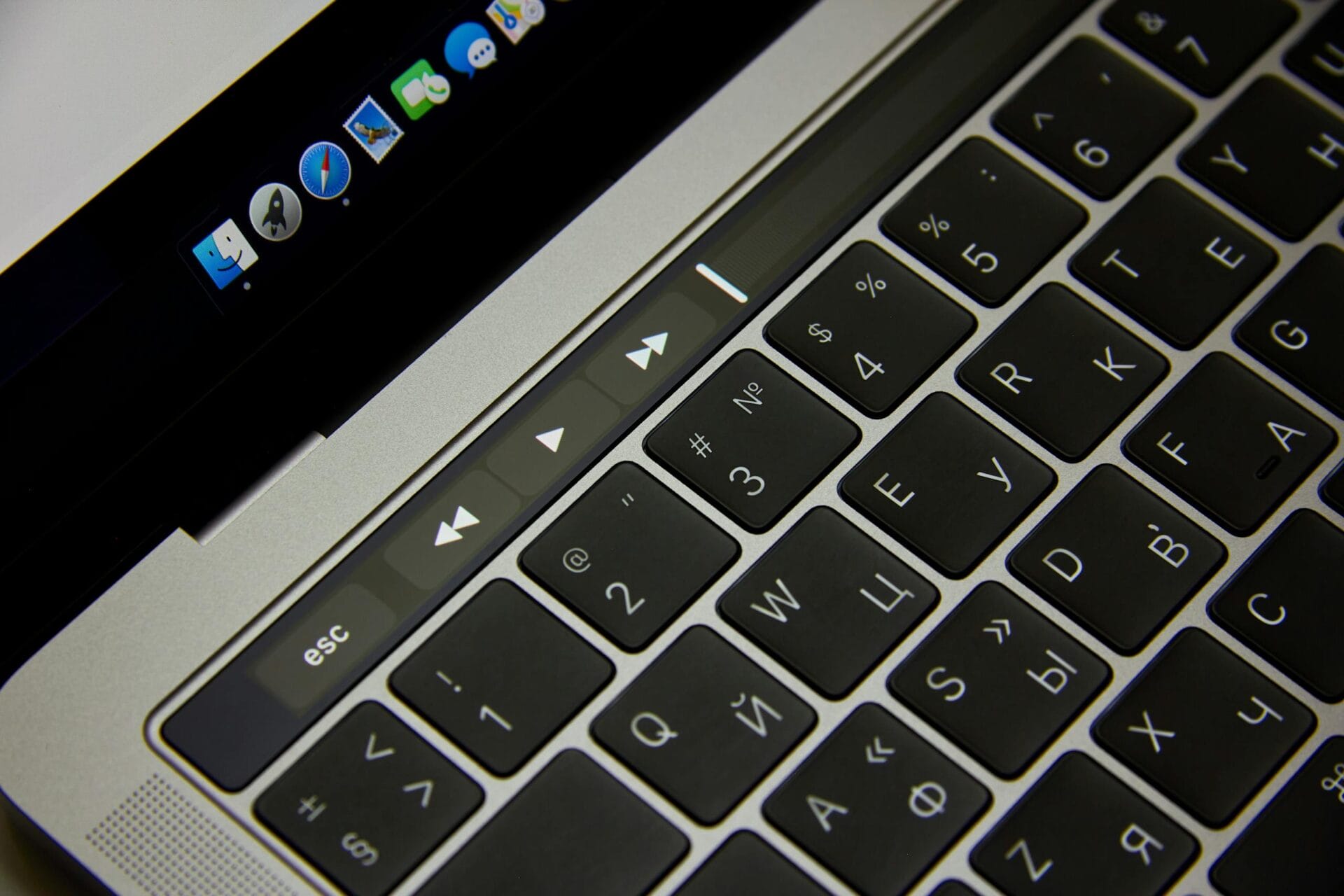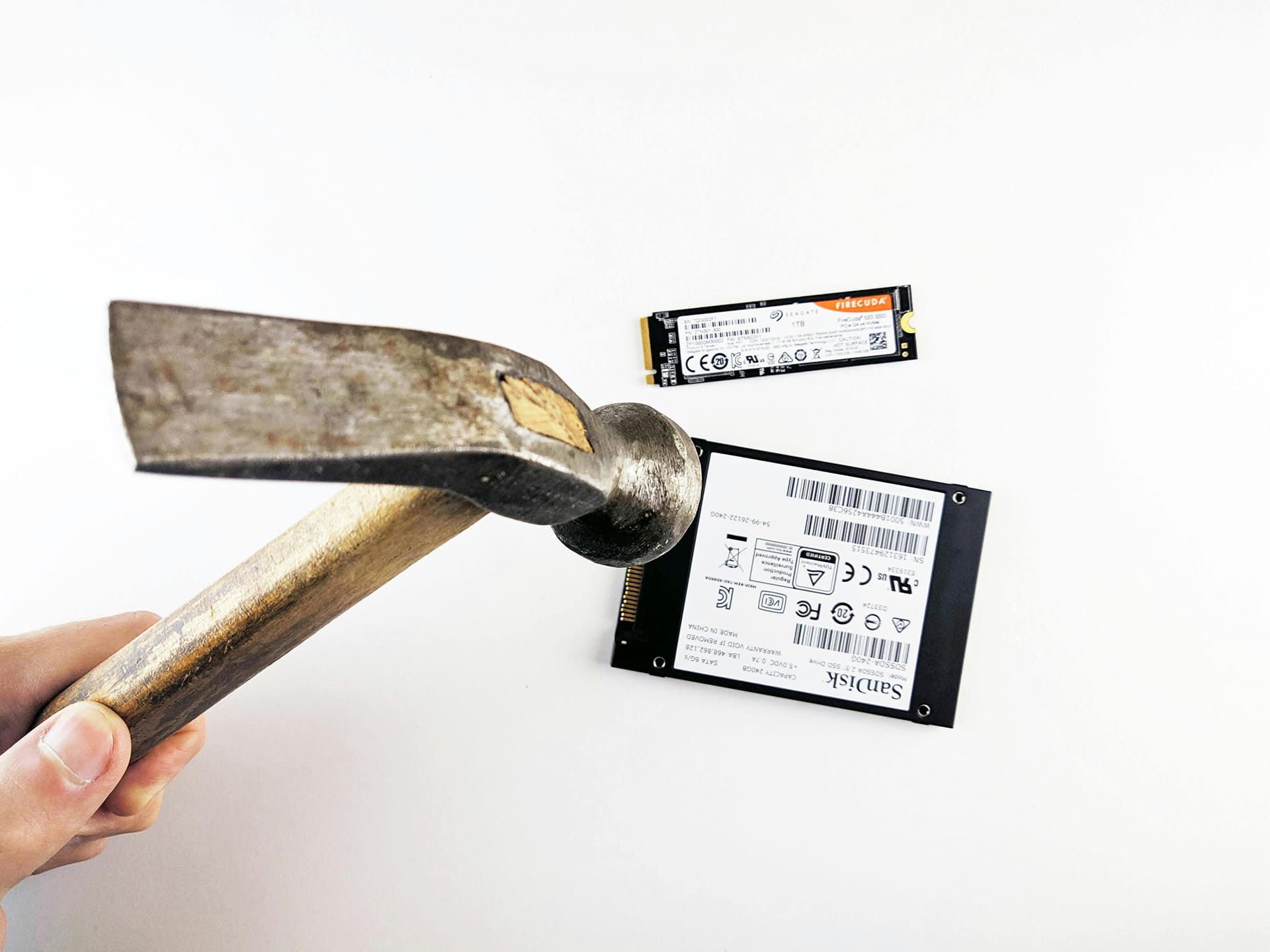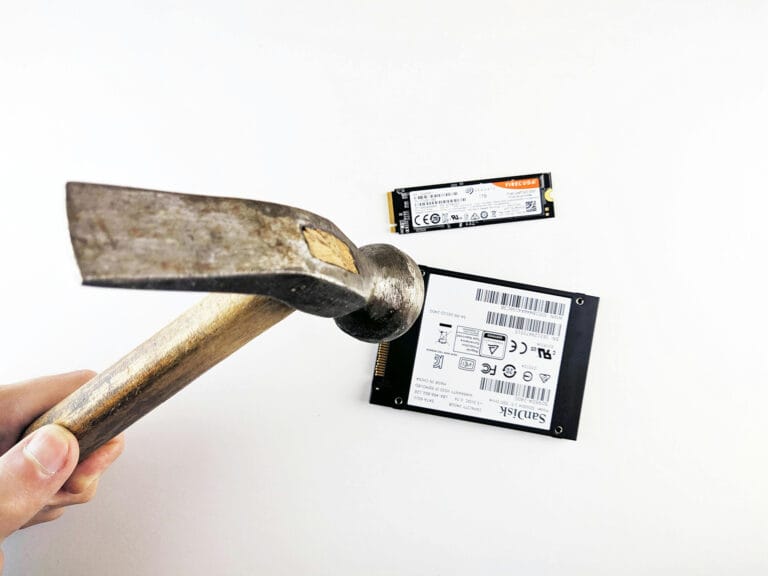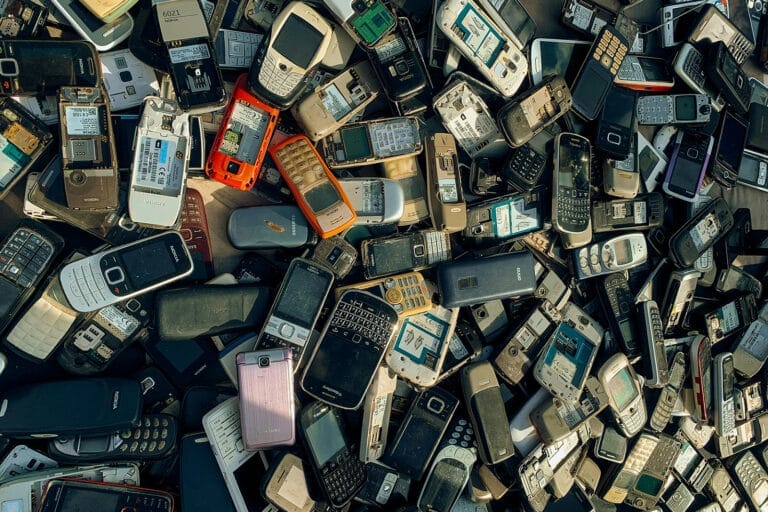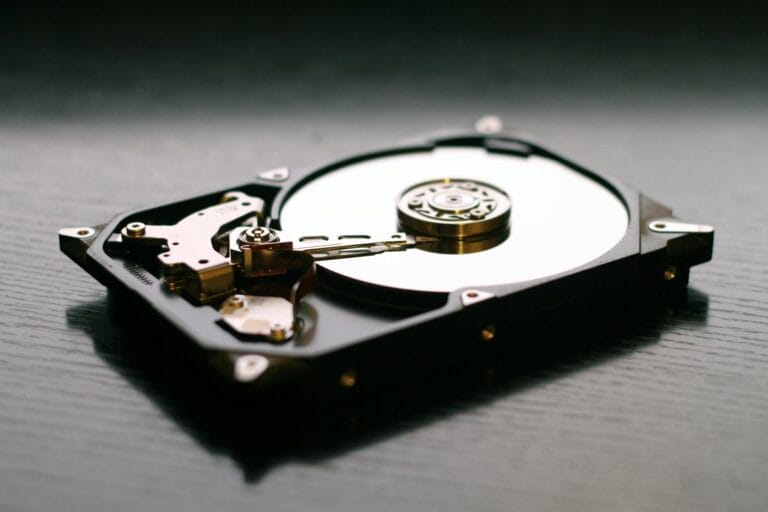Why Wiping Your Computer Before Disposal Isn’t Enough to Protect Your Data
When it’s time to dispose of an old computer, most people think that hitting “delete” or reformatting the hard drive is sufficient protection against data theft. Unfortunately, this common misconception puts millions of Americans at risk for identity theft, financial fraud, and privacy breaches every year.
The truth is, many people underestimate the sophisticated methods criminals use to recover “deleted” data from discarded electronics. Understanding why standard deletion methods fail is crucial for protecting yourself, your family, and your business from devastating data breaches.
Throwing away, donating, or selling a computer after a quick “wipe” might feel like cutting ties with your data, but in many cases, it’s only the beginning of the risk. Personal photos, financial records, business files, saved passwords, and cloud tokens can be recovered from supposedly “wiped” devices. The safest route is combining good pre-disposal hygiene with certified physical destruction.
Here’s why wiping alone often fails and what you should do instead.
The Truth About ‘Deleted’ Data
When you delete a file or format your hard drive, your computer doesn’t actually erase the data permanently. Instead, it simply marks that space as available for new information to overwrite it. The original data remains intact on the storage device until something new takes its place.
Think of it like a library book. When you return a book, the librarian doesn’t burn it immediately. They simply remove the card from the catalog and put the book in a “to be processed” pile. The book still exists and contains all its original information until the library decides what to do with it permanently.
Why a Simple Wipe Gives a False Sense of Security
Most people delete files or perform a factory reset and assume their data is gone. However, deletion typically only removes references (pointers) to the data; the bits often remain on the drive until overwritten.
Even “wiping” tools can miss data depending on the drive type, firmware, or device configuration. Skilled forensic tools and inexpensive recovery software can extract data from discarded drives, and burglars, identity thieves, or opportunistic resellers routinely scan secondhand drives for sensitive information.
How Data Recovery Software Works
Cybercriminals and identity thieves use readily available data recovery software to resurrect information from supposedly “wiped” drives. These programs can often retrieve:
- Personal documents and photos,
- Financial records and tax returns,
- Browser history and saved passwords,
- Email correspondence,
- Business files and customer information, and
- Banking and credit card details.
Professional-grade data recovery tools can reconstruct files even after multiple deletion attempts, which makes standard wiping methods inadequate for true security.
The High Stakes: Why Inadequate Disposal Is a Legal and Financial Liability
For a business, the risk of inadequate data disposal goes far beyond a single individual’s identity theft. It is a significant legal and financial liability that can lead to severe penalties, lawsuits, and a devastating loss of customer trust. The failure to properly destroy data can constitute an act of negligence, which can make a company liable for non-compliance with a growing body of regulations, regardless of whether a data breach actually occurs.
Legal Compliance Breakdown
Strict regulations are in place to mandate the secure disposal of sensitive information, and the penalties for non-compliance are severe, including the following:
- The Health Insurance Portability and Accountability Act (HIPAA): HIPAA mandates that all covered entities and their business associates must safeguard the privacy of patient medical records and other Protected Health Information (PHI). This obligation extends to the end-of-life of electronic media. Failure to adhere to HIPAA’s detailed disposal guidelines can result in monumental financial penalties. In a high-profile case, data breaches at New York Presbyterian Hospital and Columbia University in 2014 resulted in combined fines of $4.8 million for HIPAA violations.
- The Fair and Accurate Credit Transactions Act (FACTA): FACTA’s Disposal Rule requires every business in the United States to properly dispose of consumer reports and related information to protect against identity theft. Non-compliance can lead to civil lawsuits, class action liabilities, and federal and state law enforcement action. The federal government can impose a fine of $2,500 for each individual violation, with states setting an additional $1,000 per violation. In one instance, American United Mortgage Company was fined $50,000 for improperly disposing of consumer data.
Beyond these specific regulations, a company’s failure to demonstrate procedural due diligence in its data destruction practices can lead to costly civil litigation, injunctions, and criminal charges in cases of gross negligence.
The Unseen Costs
The financial fines and legal penalties are often just the beginning of the problems. A data breach resulting from improper disposal can inflict severe damage to a company’s reputation and lead to a long-term erosion of customer trust.
The public relations crisis, the cost of investigations, and the loss of business can far outweigh the fines and leave a company’s brand image permanently tarnished. The core value proposition of a professional shredding service is not just preventing a breach but providing a verifiable, compliant process that mitigates this legal and reputational liability.
The Only Guarantee: Physical Destruction
Physical destruction, specifically shredding, is the ultimate method of data destruction. It mechanically disintegrates the storage device, including the drive platters and all electronic and mechanical components, into small, unrecognizable pieces.
This process makes data recovery physically impossible, as the data and the medium on which it resides are completely obliterated. For this reason, physical destruction is considered the gold standard for irreversibility, especially for highly sensitive data.
Why Professional Destruction Beats Data Wiping
Professional data destruction services, such as those provided by Marshall Shredding, use industrial-grade equipment that physically destroys storage devices beyond any possibility of data recovery. It provides the following benefits:
- Guaranteed irrecoverability: Industrial-grade hard drive shredders physically destroy platters and SSD chips, so nothing can be reconstructed.
- Chain of custody and documentation: For businesses, proof matters. A Certificate of Destruction documents that sensitive media were destroyed according to best practices.
- Regulatory compliance: Healthcare, legal, financial, and government organizations often require verifiable destruction methods.
- Environmentally responsible recycling: Reputable vendors separate materials and recycle them safely.
Protecting Your Future: Making the Right Choice
Your personal and business data are some of your most valuable assets. Protecting this information requires more than good intentions. It demands professional-grade security measures that eliminate risk entirely.
While wiping is a good first step, it’s not the end of your responsibility. For personal peace of mind or to meet legal and regulatory obligations, pair good pre-disposal practices with certified physical destruction.
Don’t let inadequate data protection put your personal information, financial security, or business reputation at risk. Contact Marshall Shredding today to learn more about our comprehensive data destruction services.
Our team of certified professionals is ready to help you dispose of computers, hard drives, and other electronic devices with complete security and peace of mind. Protect what matters most, and choose professional data destruction that works.
Ready to secure your data? Contact Marshall Shredding for reliable, NAID AAA-certified data destruction services that protect your privacy and meet all compliance requirements.

